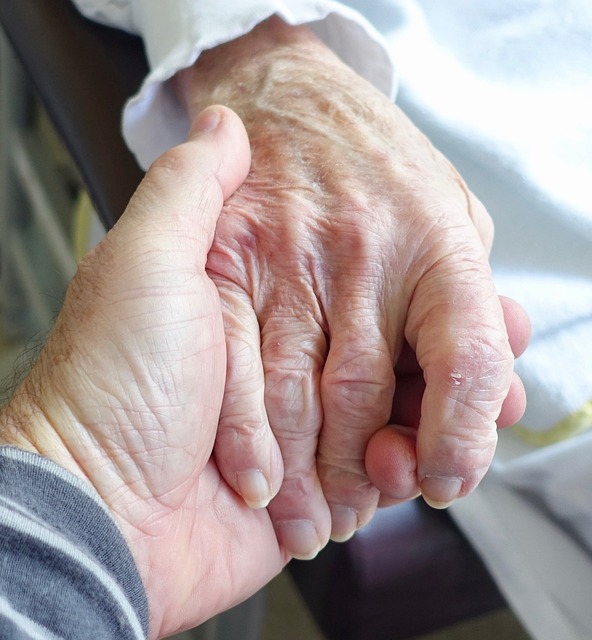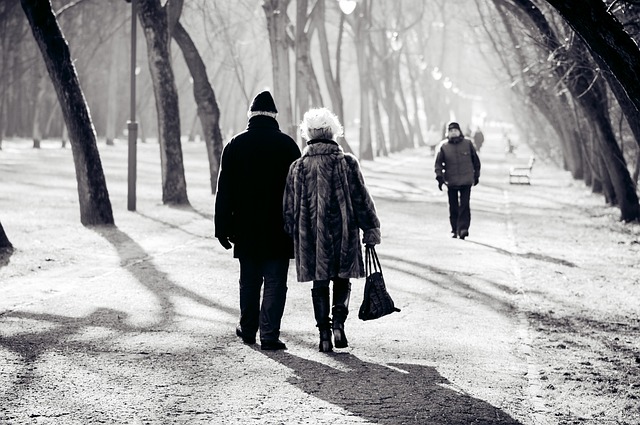When it comes to senior safety, we want to ensure that our loved ones are protected both inside and outside of the house. After all, accidents and incidents can happen anywhere. So, what are some tips for senior safety when they are out and about? In this article, we will explore some practical advice and strategies to help seniors stay safe while they are away from home.
First and foremost, it’s crucial for seniors to have a well-thought-out plan before leaving the house. This includes letting someone know where they are going, when they plan to return, and how they can be reached in case of an emergency. It’s also advisable for them to carry a fully charged cellphone or a personal emergency alert device that they can easily access if needed.
Next, proper footwear plays a significant role in maintaining senior safety outdoors. Seniors should opt for comfortable, sturdy shoes that provide good support and have non-slip soles. This will reduce the risk of falls or accidents, especially on uneven surfaces.
Additionally, seniors should be mindful of their surroundings and avoid isolated or poorly lit areas. It’s advisable for them to stick to well-lit, crowded areas and to avoid walking alone at night if possible. Carrying a small flashlight may also come in handy to enhance visibility in dimly lit areas.
In conclusion, ensuring senior safety when they are out of the house requires careful planning and awareness of potential risks. By having a clear plan, wearing suitable footwear, and being attentive to their surroundings, seniors can greatly reduce the likelihood of accidents or incidents while they are away from home. To learn more about senior safety tips, continue reading our article for further insights and advice.
Maintaining Physical Safety
As a senior, it’s important to prioritize your safety when you’re outside of your home. By following a few simple tips, you can minimize risks and ensure a secure experience.
Keeping an Eye on the Environment
When you’re out and about, it’s crucial to stay aware of your surroundings. Keep an eye out for any potential hazards or obstacles that could pose a risk to your safety. Be mindful of uneven surfaces, slippery areas, and dangerous neighborhoods. By remaining vigilant and observant, you can avoid potential accidents.
Using Mobility Aids
If you have mobility issues, using mobility aids such as canes, walkers, or wheelchairs can greatly enhance your safety. These aids provide stability and support, helping you maintain your balance and reduce the risk of falls. Make sure your mobility aids are in good condition and properly adjusted to fit you properly.
Being Cautious on Stairs
Stairs can be a significant challenge for seniors, especially those with balance or mobility issues. Take your time when navigating stairs and hold onto the handrail for support. If possible, avoid using stairs altogether by using ramps or elevators instead.
Preventing Falls
Falls are a common cause of injuries for seniors, but they can often be prevented with some simple precautions. Ensure that your walking path is clear of obstacles such as loose carpets, clutter, or uneven surfaces. Consider using non-slip mats or rugs in areas prone to moisture.
Using Handrails
Handrails are your best friend when it comes to maintaining balance and stability. Whether you’re walking down the street or climbing stairs, always use the handrails whenever available. They provide extra support and can help prevent accidents and injuries.
Using Proper Footwear
Choose comfortable and supportive footwear that fits well. Wearing shoes with non-slip soles can help prevent slips and falls. Avoid high heels or shoes with slick soles, as they increase the risk of accidents. Good footwear is essential for maintaining your stability and ensuring your safety.
Protecting Personal Belongings
While you’re out of the house, it’s important to protect your personal belongings from theft or loss. By following these tips, you can keep your valuables secure.
Keeping Valuables Secure
Keep your valuables such as wallets, phones, and jewelry in a secure and easily accessible place such as a zippered pocket or a crossbody bag. Avoid carrying large sums of cash or unnecessary credit cards to minimize the potential loss.
Avoiding Flashy Accessories
Avoid wearing flashy accessories or clothing that might attract unwanted attention. Opt for more modest and low-key attire to avoid becoming a target for thieves. It’s always best to blend in with the crowd when it comes to personal safety.
Utilizing Secure Bags
Invest in a bag with secure closures such as zippers or clasps.

Securing Purses and Wallets
Keep your purse or wallet close to your body and avoid placing them in easily accessible areas such as the back pocket or the top of a shopping cart. Consider using a money belt or a travel pouch that can be worn underneath your clothing for added security.
Guarding Against Theft and Scams
When you’re out of the house, it’s crucial to be on guard against theft and scams. By staying vigilant and following these tips, you can protect yourself from potential dangers.
Being Aware of Surroundings
Stay alert and aware of your surroundings at all times. Avoid distractions such as talking on your phone or listening to loud music, as these can prevent you from noticing potential threats. Being aware of your surroundings allows you to identify any suspicious behavior or situations.
Avoiding Isolated Areas
Try to avoid isolated areas, especially at night or in unfamiliar places. Stick to well-lit and populated areas where there are other people around. If you feel uncomfortable or unsafe, trust your instincts and find a more secure location.
Not Sharing Personal Information
Avoid sharing personal information with strangers, whether in person or over the phone. This includes your home address, phone number, or any other sensitive details. Scammers often use tricks and tactics to gather personal information, so it’s important to be cautious.
Recognizing Scam Tactics
Be aware of common scam tactics, such as someone pretending to be a relative in need of money or a stranger claiming to offer a lucrative deal. If something seems too good to be true, it probably is. Trust your instincts and consult with a trusted friend or family member if you’re unsure.
Using Caution with Strangers
Exercise caution when interacting with strangers, especially those who approach you with unsolicited offers or requests. Be polite but assertive, and don’t hesitate to walk away or seek help if you feel uncomfortable or threatened.
Staying Visible and Connected
Visibility and connection are essential for senior safety when you’re out of the house. By following these tips, you can ensure that you’re easily seen and in contact with others.
Wearing Bright Clothing
Choose clothing in bright colors that make you easily visible, especially in low-light conditions. Reflective gear, such as a reflective vest or accessories, can be particularly helpful when walking or cycling near traffic.
Carrying Identification
Always carry identification with you, such as a driver’s license or a medical ID bracelet. This will help others quickly identify you and provide the necessary assistance in case of an emergency.
Using a Cell Phone
Keep a cell phone with you at all times, fully charged and easily accessible. This will allow you to contact emergency services or reach out to friends or family in case of an emergency. Consider carrying a portable phone charger to ensure your phone stays powered throughout the day.
Sharing Plans with Others
Before heading out, let a family member, friend, or neighbor know where you are going and when you expect to return. This way, someone will be aware of your whereabouts and can check on you if necessary.
Contacting Emergency Services
Know how to contact emergency services in your area. Familiarize yourself with the local emergency number and save it in your phone for quick access. If you find yourself in an emergency situation, don’t hesitate to call for help.
Being Prepared for Emergencies
It’s important to be prepared for emergencies when you’re outside of the house. By following these tips, you can ensure that you have the necessary resources and information to handle unexpected situations.
Carrying Medications
If you have any chronic health conditions or take regular medications, always carry them with you in a secure and easily accessible place. Consider carrying a list of your medications, including dosage instructions, in case of a medical emergency.
Knowing Emergency Contact Information
Keep a list of important emergency contact information in your wallet or saved on your phone. This should include phone numbers for family members, doctors, and any other relevant contacts. Having this information readily available can be crucial in case of an emergency.
Creating an Emergency Plan
Create an emergency plan that outlines the steps you should take in case of various emergencies. This can include natural disasters, medical emergencies, or situations where you feel unsafe. Share this plan with a trusted family member or friend so they can assist you if needed.
Keeping Emergency Supplies
Carry a small emergency kit with essentials such as a flashlight, a whistle, a small first aid kit, and a water bottle. These items can come in handy in various emergency situations and ensure that you’re prepared for unexpected events.
Learning Basic First Aid
Consider taking a basic first aid course to learn essential life-saving skills. Knowing how to handle common injuries or medical emergencies can be invaluable when you’re outside of the house. Contact your local healthcare provider or community center to find out about available training opportunities.
Ensuring Transportation Safety
When you’re traveling outside of your home, whether by car or public transportation, it’s important to prioritize transportation safety. By following these tips, you can minimize the risk of accidents and ensure a safe journey.
Using Reliable Transportation
When possible, choose reliable transportation options that have a good safety record. If you’re driving, ensure that your vehicle is well-maintained and in good working condition. If you’re using public transportation, research the reputation of the service provider and select reputable companies.
Buckling Up in Vehicles
Always wear your seatbelt when traveling in a vehicle, whether as a driver or a passenger. Seatbelts greatly reduce the risk of serious injuries in the event of an accident.
Adjusting Seats and Mirrors
If you’re driving, ensure that your seat and mirrors are properly adjusted before starting your journey. This will provide you with an optimal driving position and better visibility, reducing the risk of accidents.
Using Public Transportation Safely
When using public transportation, be cautious when boarding or exiting vehicles. Ensure that you have a secure footing, hold onto handrails if available, and be mindful of gaps between the platform and the vehicle.
Avoiding Driving in Poor Conditions
If weather conditions are poor or if you’re feeling unwell, avoid driving.

Avoiding Potential Hazards
When you’re outside of your home, it’s important to be mindful of potential hazards that can pose a risk to your safety. By following these tips, you can minimize the risk of accidents and injuries.
Being Cautious around Vehicles
Be cautious when walking or crossing roads, and always obey traffic rules. Avoid walking in areas with heavy traffic if possible, and look both ways before crossing the street. Be aware of vehicles around you and never assume that drivers can see you.
Avoiding Slippery Surfaces
Watch out for slippery surfaces such as wet or icy sidewalks, as they can increase the risk of falls.

Watching Out for Obstacles
Be mindful of obstacles such as fallen tree branches, potholes, or uneven pavement. Scan your path ahead and make any necessary adjustments to avoid potential tripping hazards.
Avoiding Dangerous Neighborhoods
If you’re unfamiliar with an area or if it has a reputation for being unsafe, avoid it if possible. Stick to well-populated and well-lit areas to minimize the risk of encountering dangerous situations.
Being Mindful of Traffic
When walking or cycling near traffic, remain vigilant and follow the rules of the road. Be predictable in your movements, use designated crossings, and make yourself visible to drivers by wearing bright clothing and using reflective gear.
Taking Precautions in Public Spaces
When you’re in public spaces, it’s important to take precautions to ensure your safety. By following these tips, you can minimize the risk of accidents and remain secure.
Using Adequate Lighting
Stick to well-lit areas, especially during the evening or nighttime. Adequate lighting helps you see potential hazards and deters potential criminals, making you less of a target.
Being Cautious in Crowds
When in crowded spaces such as shopping centers or events, be aware of your personal space and belongings. Keep your bags and valuables close to your body and be cautious of anyone who gets too close. Pickpockets often target crowded areas, so remain vigilant.
Securing Personal Belongings
Ensure that your bags or personal belongings are secure when you’re in public spaces. Keep them within your line of sight and hold onto them firmly. If you need to set them down, place them between your feet or on your lap to deter theft.
Avoiding Uneven Surfaces
Be mindful of uneven surfaces such as curbs, steps, or cracked pavements. Take your time and use handrails if available to maintain your balance and prevent accidents.
Avoiding Unfamiliar Areas
If you’re in an unfamiliar area, take extra precautions to ensure your safety. Stick to well-known and well-populated areas, and avoid venturing into unfamiliar neighborhoods, especially at night.
Maintaining Mental Alertness
To ensure your safety when you’re outside of the house, it’s important to maintain mental alertness. By following these tips, you can stay focused and engaged, minimizing the risk of accidents.
Keeping a Clear Mind
Try to maintain a clear and focused mind when you’re out of the house. Avoid distractions such as excessive multitasking, excessive worrying, or overwhelming yourself with too many activities. Keeping a clear mind allows you to stay present and aware of your surroundings.
Avoiding Distractions
Avoid distractions such as talking or texting on your phone while walking or crossing roads. It’s crucial to stay focused and give your full attention to your surroundings to prevent accidents or mishaps.
Sticking to Familiar Routes
Stick to familiar routes when possible. Familiarity with your surroundings can reduce stress and minimize the likelihood of getting lost or disoriented.
Using Memory Techniques
If you have difficulty remembering directions or locations, consider using memory techniques such as repetition or visualization. Repeating directions or mentally visualizing familiar landmarks can help you navigate more confidently.
Staying Engaged in Activities
Engage in activities and hobbies that challenge your mind and keep you mentally active. This can include reading, puzzles, games, or socializing with others. Staying mentally engaged can help improve cognitive function and keep your mind sharp.
Conclusion
Prioritizing senior safety outside the house is crucial to minimize risks and ensure a secure experience. By following these tips, seniors can enhance their physical safety, protect their personal belongings, guard against theft and scams, stay visible and connected, be prepared for emergencies, ensure transportation safety, avoid potential hazards, take precautions in public spaces, and maintain mental alertness. These comprehensive measures contribute to a safer and more enjoyable experience for seniors when they are out of the house. Remember to always be aware of your surroundings, stay connected with others, and take the necessary precautions to ensure your safety.


